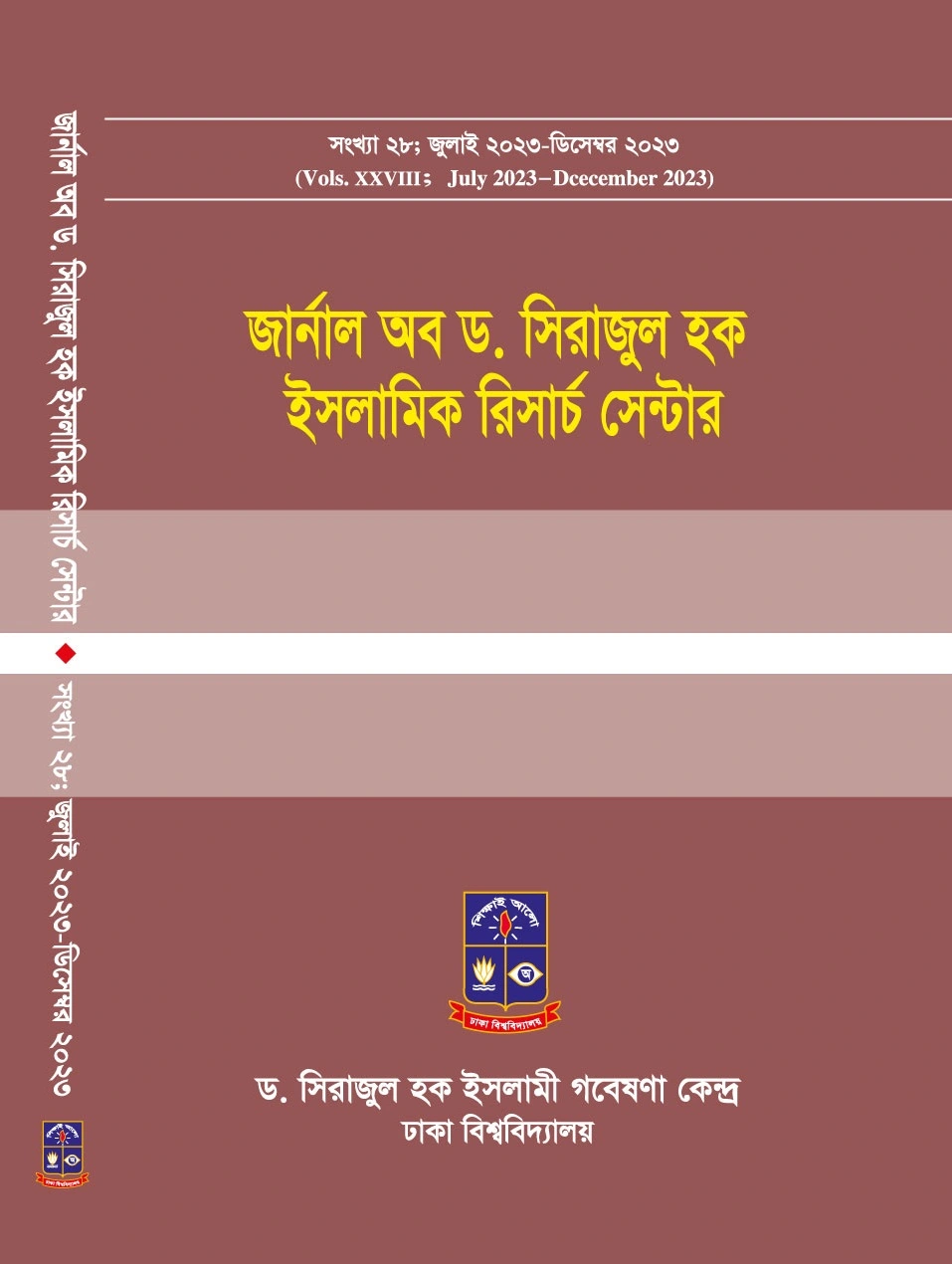
Journal of Dr. Serajul Haque Centre for Islamic Research
The Context of Zakat Legislation: A Theoretical Analysis
- Md. Ashraful Islam
Lecturer, Department of Islamic Studies, Ragib-Rabeya Degree College, Sylhet
Volume 28, July 2023-December 2023
DOI: https://www.doi.org/10.63267/JDSHCIR.V28.A8
ISSN: 1997-857X (Print)
Abstract
Islam is a fair, beautiful and balanced way of life. The system of life in which clear directions are described about the overall affairs of the people. And the economic aspect is very important in all matters. For this reason, the issues related to economy have been discussed in detail in the Complete Guide to Life in Islam. The Zakat system is an important branch of Islamic economics. The main feature of this law is to regularly collect a certain portion of the wealth from the rich and welloff people and distribute it among eight classes of people including the poor and deprived. This provision has been described as the third pillar of Islam as Zakat is the main tool for building a society free from discrimination and poverty. The Zakat system was introduced to protect the poor class from the economic exploitation and oppression of the rich and wealthy and to get their due rights. Although there is no difference of opinion regarding the obligatory nature of Zakat, there is disagreement among the scholars as to when and where it was made obligatory. Zakat was introduced in Mecca during the early period of Islam but no detailed regulations were introduced at that time. Later, after the Hijrah, the law of Zakat was introduced and implemented in Madinah and the nisab, amount, conditions and areas of expenditure of Zakat were described in detail. The discussion article highlights the brief introduction of Zakat, the period of introduction of Zakat, the context of introduction of Zakat and the necessity of introduction of Zakat to achieve economic prosperity.
